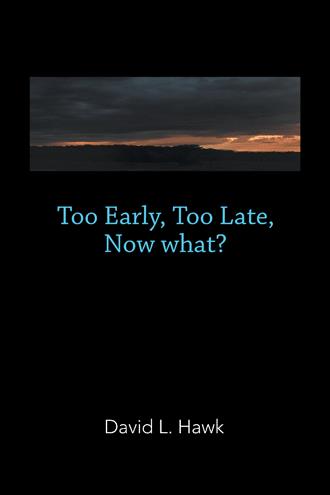While it’s important to appreciate the systems thinking foundations laid down by the Tavistock Institute and U. Pennsylvania Social Systems Science (S3, called S-cubed) program, practically all of the original researchers are no longer with us. Luminaries who have passed include Eric L. Trist (-1993), Fred E. Emery (-1997), and Russell L. Ackoff (-2009). This does not mean that systems research has stopped.
One individual who participated in it all is David L. Hawk.
- In 1972, he started at U. Pennsylvania in the master’s program in Architecture and Urban Planning, then continuing to complete a Ph.D. in Social Systems Science in 1979.
- We were both at the 1998 meeting in Atlanta of the International Society for the Systems Sciences, and then were side-by-side disagreeing with everyone else at a roundtable at the 1999 Villanova meeting for “Russell L. Ackoff and the Advent of Systems Thinking“.
- After disappointment at the program at the ISSS Toronto 2000 meeting, four of us — DLH, Minna Takala, Ian D. Simmonds and myself — informally met as the Systemic Business Community. We met around IBM Palisades and northern New Jersey. This extended to a Symposium on Inter-Organizational Relations in Finland in 2003, and an IFSR Conversation in Austria in 2004.
We have been continuously been collaborators ever since. DLH served as the thesis advisor for Aalto University on my Open Innovation Learning research.
The recent revisiting of the Tavistock legacy and Eric Trist’s work, combined with the pandemic shutdown of face-to-face meetings has led us to change the format of Systems Thinking Ontario meetings. Traditionally, these sessions have purposively been face-to-face meetings without electronic options. Since we’ve been forced into web meetings, the changed dynamics of human interaction levels the playing field on presence and interaction.
Since I know DLH too well, I asked my friend and colleague Dan Eng to lead a conversation with him. This was recorded, and is now available for viewing on Youtube as a 149-minute streaming web video.
Those who prefer to listen or watch while mobile can download video files.
| Video | H.264 MP4 |
| August 10 (2h29m) |
[ (WXGA 2101kbps 2.3GB) [on archive.org] |
The digital audio originally in M4A format has also been transcoded to MP3.
| Audio | |
| August 10 (2h29m) |
[20200810_ST-ON DavidLHawk Tavistock-SocialSystemsScience-ActionLearning.m4a] (58MB) 20200810_ST-ON DavidLHawk Tavistock-SocialSystemsScience-ActionLearning.mp3] (84MB) |
Here is the original description for the Systems Thinking Ontario August 10, 2020, session.
— begin paste —
Tavistock, Social Systems Science, Action Learning
Organization studies in the systems sciences have a long history, from:
- the post-WWII Tavistock Institute in the UK circa 1946-1966 (e.g. with Eric Trist and Fred Emery);
- the Social Systems Science (S3) program circa 1964-1986 (e.g. with Russell Ackoff, Eric Trist, Hasan Ozbehkhan) and
- the Action Learning Group at York University (Toronto) circa 1967-1989 (e.g. with Eric Trist, Rafael Ramirez, Gareth Morgan).
With decades of publications as a legacy, there are some individuals to knew many of the figures, first-hand.
With our August session convening over the Internet, we are honoured to welcome David L. Hawk to join us in conversation.
- David Hawk was a professor at the New Jersey Institute of Technology (NJIT) from 1981 to 2010. His appointments included dual professorships to the School of Management and School of Architecture. He is (in)famous as Dean of the School of Management, 2005-2008.
- In his educational history, David Hawk was at University of Pennsylvania from 1972 to 1979. After completing master’s degrees in architecture and city planning, he graduated with a Ph.D. in Social Systems Science, naming professors Russell Ackoff, Hasan Ozbehkhan and Eric Trist as his mentors.
- Upon the 40th anniversary of his dissertation, David Hawk has written a new introduction and republished its contents as Too Early, Too Late, Now What? (See on AuthorHouse.com, on Amazon.ca , on Amazon.com, on GoogleBooks.ca, on GoogleBooks.com, and on Chapters.Indigo ).
- David Hawk has taught at many universities globally (Stockholm School of Economics, Helsinki U. of Technology (now Aalto University), Tsinghau University) and consulted with multinational enterprises (IBM, Nokia, China Construction America). He now runs a corporate rehabilitation centre in Fairfield, Iowa.
- Full disclosure: David Hawk has served as a guide for David Ing to the systems sciences community since first meeting at an Ackoff conference in 1999, and through ISSS meetings. He also served as thesis advisor on Open Innovation Learning, for Aalto University.
The web conference will be moderated by Dan Eng, one of the cofounders of the Systems Changes Learning Circle, and a former instructor at Humber College.
Participants are welcomed to continue the dialogue online at the Open Learning Commons.
Some recent blog posts on the legacy of the Tavistock Institute (in socio-psychological, socio-technical and socio-ecological systems perspectives) through to the Action Learning Group at York University have be written:
- “Causal texture, contextualism, contextural” at http://coevolving.com/blogs/index.php/archive/causal-texture-contextural-contextualism/ .
- “Causal Texture of the Environment” at http://coevolving.com/blogs/index.php/archive/causal-texture-of-the-environment/ .
- “Trist in Canada, Organizational Change, Action Learning” at http://coevolving.com/blogs/index.php/archive/trist-in-canada-organizational-change-action-learning/
- “Socio-Technical Systems, Service Systems Science” at http://coevolving.com/blogs/index.php/archive/socio-technical-systems-service-systems-science/ .
— end paste —



